Are solar lights worth it? This question arises frequently as homeowners seek sustainable and cost-effective lighting solutions. Solar lights offer a compelling alternative to traditional electric lights, harnessing the power of the sun to illuminate outdoor spaces. By converting sunlight into electricity, these eco-friendly fixtures provide a reliable and energy-efficient lighting source, contributing to both environmental sustainability and cost savings.
This comprehensive guide delves into the functionality, installation, brightness, cost, and applications of solar lights, empowering you to make an informed decision about whether they are the right choice for your needs.
Solar Light Functionality
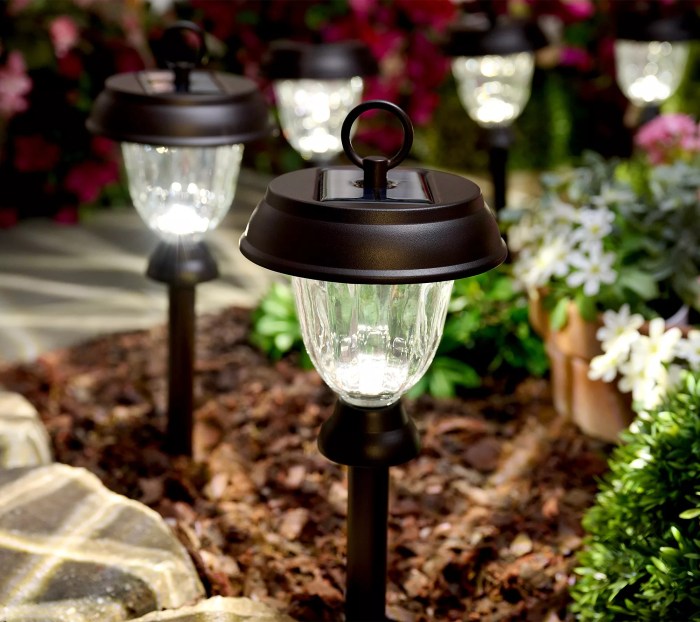
Solar lights harness the power of the sun to illuminate outdoor spaces, providing a sustainable and cost-effective lighting solution. These lights convert solar energy into electricity, eliminating the need for traditional power sources.
How Solar Lights Work
Solar lights operate through a simple yet ingenious process involving the conversion of solar energy into electricity. This process relies on the photovoltaic effect, where sunlight strikes a solar panel, composed of semiconductor materials like silicon. The photons in sunlight excite electrons in the semiconductor, generating an electrical current.
This current is then stored in a rechargeable battery within the solar light. When darkness falls, the stored energy powers an LED bulb, illuminating the surrounding area.
Types of Solar Lights
Solar lights are available in a wide range of designs and functionalities, catering to various outdoor lighting needs. Here are some common types:
- Path Lights:These small, typically low-voltage lights are designed to illuminate walkways and garden paths, providing safety and aesthetics. They are often equipped with motion sensors, turning on automatically when movement is detected.
- Spotlights:Offering a focused beam of light, spotlights are ideal for highlighting specific features in gardens or landscapes, such as statues, trees, or architectural elements. They can also be used for security purposes, illuminating potential entry points.
- Security Lights:These lights are designed for deterring intruders and enhancing safety around homes and businesses. They often feature motion sensors and powerful LED bulbs, providing a bright illumination upon detecting movement.
- Flood Lights:With their wide-angle illumination, flood lights are suitable for illuminating larger areas like driveways, parking lots, or sports fields. They are also commonly used for security purposes, providing a strong deterrent against crime.
Advantages of Using Solar Lights
Solar lights offer numerous advantages over traditional lighting methods, making them a compelling choice for outdoor illumination.
Deciding if solar lights are worth it depends on your needs and budget. If you’re looking for a sustainable and cost-effective way to illuminate your garden, they can be a great option. For even more creative ways to enhance your outdoor space, explore our guide on DIY Garden Projects: Transforming Your Outdoor Space with Creativity and Simplicity.
With a little creativity, you can transform your garden into a beautiful and inviting oasis, even with the help of solar lights.
- Energy Efficiency:Solar lights utilize renewable solar energy, reducing reliance on fossil fuels and minimizing carbon emissions. They are significantly more energy-efficient than traditional lights, contributing to a greener environment.
- Cost Savings:While the initial cost of solar lights may be slightly higher than traditional lights, they offer long-term cost savings. With no electricity bills or maintenance costs, solar lights provide a cost-effective lighting solution over time.
- Environmental Friendliness:By harnessing the power of the sun, solar lights minimize environmental impact. They do not generate greenhouse gases or contribute to air pollution, making them a sustainable choice for outdoor lighting.
- Ease of Installation:Solar lights are typically easy to install, requiring minimal wiring and effort. They can be placed virtually anywhere with access to sunlight, offering flexibility and convenience.
- Low Maintenance:Solar lights are designed to be low-maintenance, requiring minimal upkeep. They typically have a long lifespan and do not require frequent bulb replacements or electrical repairs.
Installation and Maintenance
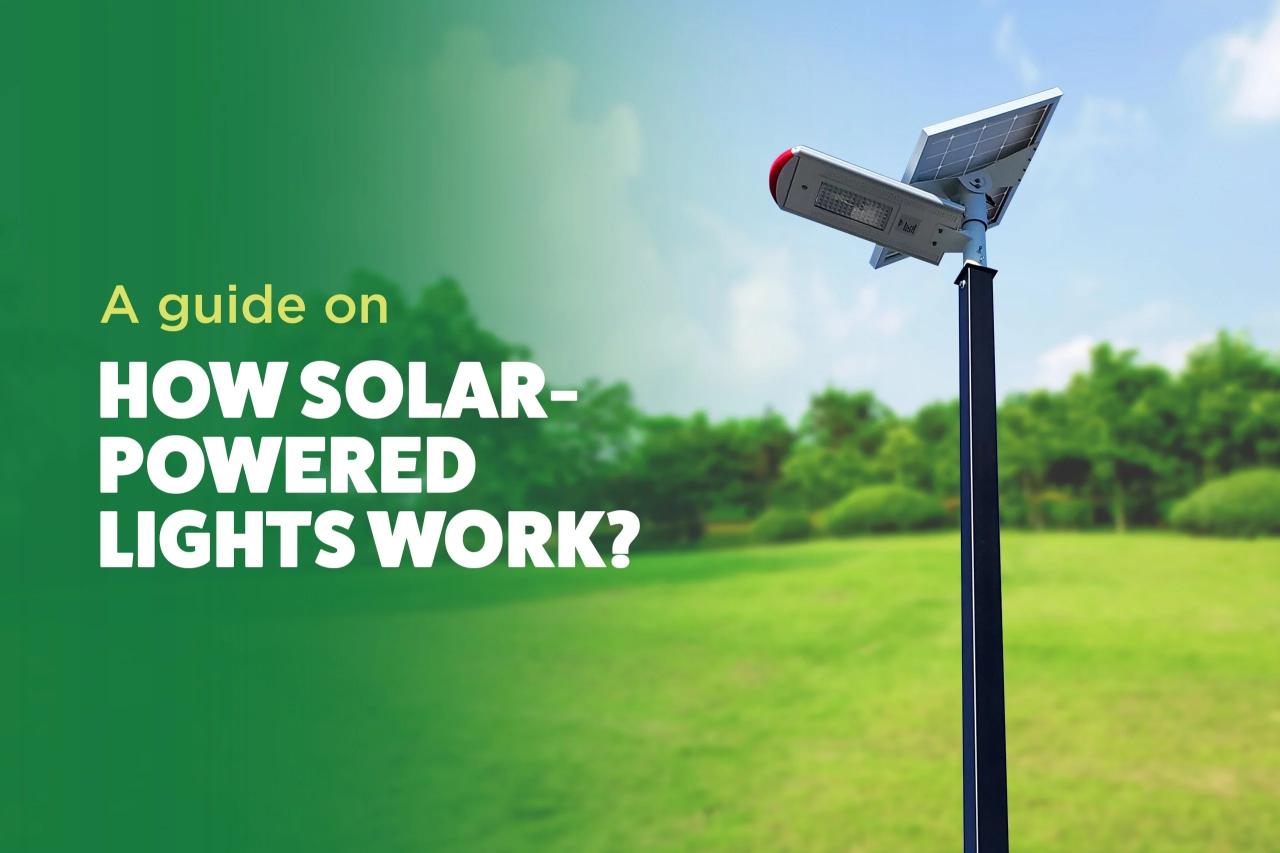
Installing solar lights is generally straightforward, but proper placement and regular maintenance are crucial for maximizing their effectiveness and lifespan. This section provides a comprehensive guide to ensure your solar lights operate optimally.
Installation
- Choosing the Right Location:Select an area with ample sunlight exposure throughout the day. Consider the direction of the sun, ensuring the solar panel faces south (in the Northern Hemisphere) or north (in the Southern Hemisphere) for optimal energy absorption. Avoid areas with shade from trees or buildings, as this will significantly reduce the amount of solar energy collected.
- Mounting and Securing:Most solar lights come with mounting hardware, but the specific method will depend on the type of light. Use screws or stakes to securely attach the lights to the desired location. Ensure the mounting is sturdy and can withstand weather conditions.
Solar lights are a great way to add ambiance to your yard, but they’re only effective if you have a dry, well-drained space. If your yard is prone to waterlogging, you might want to consider addressing the drainage issues first.
A comprehensive guide like How to Dry Up a Wet Yard: A Comprehensive Guide to Reclaim Your Outdoor Oasis can help you tackle the problem and create the ideal environment for your solar lights to shine. Once you’ve got a dry yard, you can enjoy the benefits of solar lighting to the fullest.
- Connecting the Components:For some solar lights, you may need to connect the solar panel to the light fixture using a wire. Carefully follow the manufacturer’s instructions for proper wiring and ensure all connections are secure.
- Testing and Adjustment:Once installed, test the lights to ensure they turn on and off automatically at dusk and dawn. You may need to adjust the angle of the solar panel slightly to maximize sunlight absorption.
Maintenance
Regular maintenance is essential for keeping your solar lights in optimal condition and extending their lifespan. Here’s a step-by-step guide:
- Cleaning the Solar Panels:Dust, dirt, and debris can accumulate on the solar panels, reducing their efficiency. Clean the panels regularly with a soft cloth and mild soap solution. Avoid harsh chemicals or abrasive materials that could damage the panels.
- Replacing Batteries:Most solar lights use rechargeable batteries, which will eventually need replacing. The battery life depends on factors such as the quality of the battery, the amount of sunlight exposure, and the frequency of use. Follow the manufacturer’s instructions for battery replacement and use batteries specifically designed for solar lights.
- Inspecting the Wiring:Regularly check the wiring connections for any signs of damage or loose connections. If any issues are found, repair them promptly to prevent malfunctions or electrical hazards.
- Storing Solar Lights During Winter:In regions with cold winters, it’s advisable to store solar lights indoors during the winter months. This helps prevent damage from freezing temperatures and ensures the batteries remain charged.
Brightness and Performance: Are Solar Lights Worth It
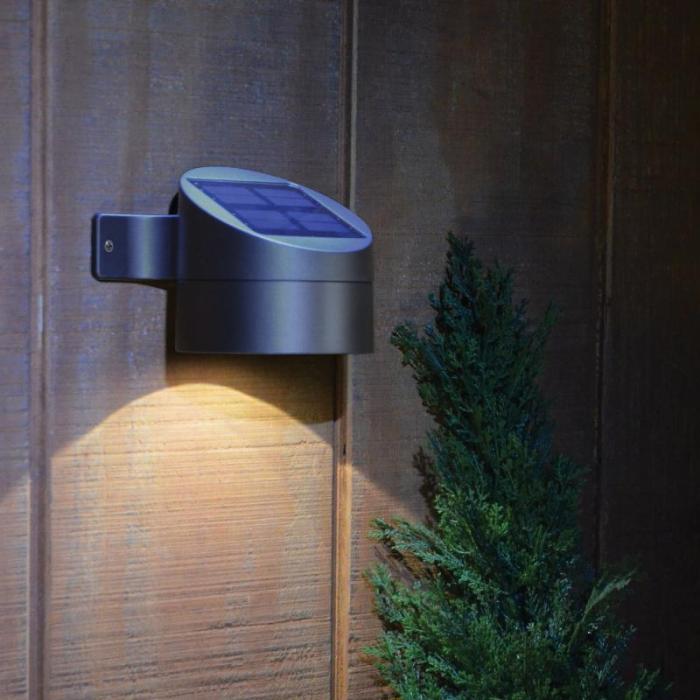
Solar lights are a great way to illuminate your outdoor spaces, but their effectiveness depends largely on their brightness and overall performance. The brightness of a solar light is measured in lumens, while the power consumption is measured in watts.
However, brightness isn’t the only factor determining a solar light’s performance. Other factors like weather conditions, battery capacity, and light sensor sensitivity also play a crucial role.
Brightness and Lumen Output
The brightness of a solar light is determined by its lumen output. The higher the lumen output, the brighter the light. Solar lights typically range in lumen output from 100 to 1,000 lumens. For example, a solar light with a lumen output of 100 lumens might be suitable for illuminating a small walkway, while a solar light with a lumen output of 1,000 lumens could be used to illuminate a larger area like a patio or garden.
- Low-lumen solar lights (100-200 lumens):These are suitable for illuminating small areas like walkways or steps. They provide a soft, ambient glow and are often used for decorative purposes.
- Medium-lumen solar lights (200-500 lumens):These are suitable for illuminating larger areas like patios or decks. They provide a brighter light that is suitable for reading or entertaining.
- High-lumen solar lights (500-1,000 lumens):These are suitable for illuminating large areas like gardens or driveways. They provide a very bright light that is suitable for security purposes.
Factors Affecting Solar Light Performance
- Weather conditions:Solar lights rely on sunlight to charge their batteries. Cloudy or rainy weather can significantly reduce the amount of sunlight that reaches the solar panel, leading to shorter run times. In areas with frequent cloud cover, consider solar lights with larger solar panels or higher battery capacities.
- Battery capacity:The battery capacity of a solar light determines how long it can operate on a single charge. Solar lights with larger battery capacities can provide longer run times, especially during cloudy weather or in areas with shorter daylight hours.
- Light sensor sensitivity:The light sensor determines when the solar light turns on and off. A more sensitive light sensor will turn on the light sooner in the evening, while a less sensitive light sensor will turn on the light later.
Real-World Examples of Solar Light Performance
- Gardens:Solar lights are often used to illuminate gardens, providing a soft, ambient glow that can highlight plants and flowers. In a garden setting, a medium-lumen solar light with a larger battery capacity would be ideal, as it can provide a longer run time and illuminate a larger area.
Solar lights can be a fantastic way to illuminate your backyard without relying on electricity. They are energy-efficient, eco-friendly, and provide a warm, inviting ambiance. However, their effectiveness depends on factors like sunlight exposure and the quality of the lights.
It’s important to consider your specific needs and budget before making a decision.
- Patios:Solar lights are also popular for illuminating patios, providing a warm, inviting atmosphere for entertaining. For patios, a high-lumen solar light with a larger battery capacity would be a good choice, as it can provide a brighter light and longer run time.
- Walkways:Solar lights are commonly used to illuminate walkways, providing safety and security. For walkways, a low-lumen solar light with a smaller battery capacity would be sufficient, as it can provide enough light to illuminate the path without being overly bright.
Cost and Value
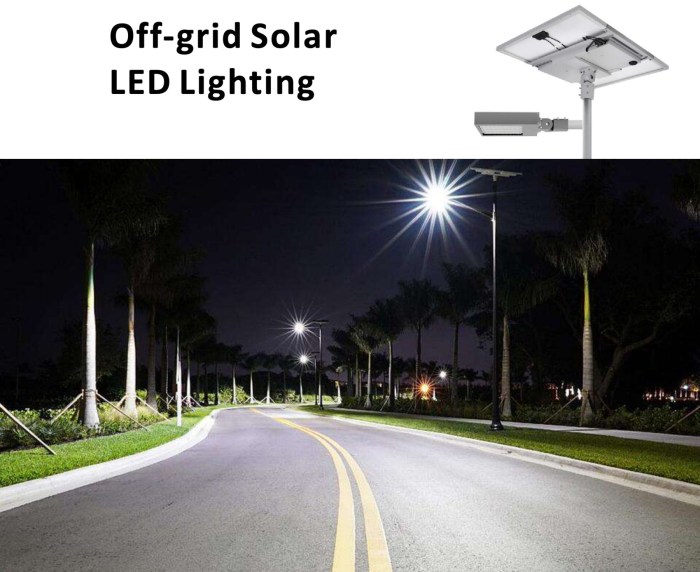
Solar lights offer a compelling blend of financial savings and environmental benefits, making them an attractive alternative to traditional electric lighting. While the initial investment may seem higher, the long-term cost savings and positive impact on the environment make them a worthwhile consideration.
Initial Cost Comparison
Solar lights generally have a higher upfront cost compared to traditional electric lights. However, this initial investment is offset by the long-term savings associated with reduced energy consumption and maintenance costs.
- Solar Lights:The price of solar lights can vary depending on factors such as size, features, and brand. A typical solar-powered pathway light can cost anywhere from $20 to $100, while larger solar security lights can range from $50 to $200 or more.
- Traditional Electric Lights:Traditional electric lights are generally cheaper upfront, with prices ranging from a few dollars for a simple bulb to several hundred dollars for more complex fixtures. However, these lights require ongoing energy consumption, which can significantly increase their overall cost over time.
Long-Term Cost Savings
The cost savings associated with solar lights stem from their ability to harness free energy from the sun, eliminating the need for electricity from the grid.
- Reduced Energy Bills:By eliminating the need for electricity, solar lights can significantly reduce your energy bills. This is particularly advantageous in areas with high electricity rates.
- Lower Maintenance Costs:Solar lights are generally low-maintenance, as they do not require wiring or bulbs. The batteries typically last for several years and are easily replaceable. This reduces the need for frequent repairs or replacements, resulting in lower maintenance costs.
Overall Value Proposition, Are solar lights worth it
Solar lights offer a compelling value proposition, combining financial benefits with environmental advantages.
- Financial Savings:The long-term cost savings associated with reduced energy bills and lower maintenance costs make solar lights a financially sound investment.
- Environmental Sustainability:Solar lights contribute to a greener environment by reducing reliance on fossil fuels and minimizing carbon emissions.
Considerations and Applications
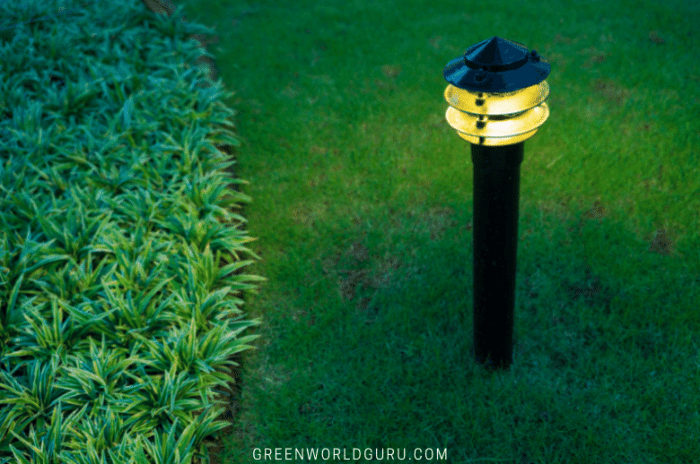
Choosing the right solar lights involves considering various factors to ensure they meet your specific needs and preferences. The functionality and effectiveness of solar lights are influenced by several key aspects, including brightness, size, and design. Understanding these considerations and their impact on the overall performance of solar lights will help you make an informed decision.
Applications of Solar Lights
Solar lights offer a versatile and practical solution for various lighting needs, both indoors and outdoors. Their ability to harness energy from the sun makes them an eco-friendly and cost-effective alternative to traditional electric lighting.
- Home Lighting:Solar lights can illuminate pathways, driveways, and gardens, enhancing safety and security while adding a decorative touch to outdoor spaces.
- Outdoor Security:Solar security lights, equipped with motion sensors, provide instant illumination when movement is detected, deterring potential intruders and enhancing peace of mind.
- Emergency Lighting:In the event of a power outage, solar lights can provide essential illumination, ensuring safety and visibility during emergencies.
- Decorative Lighting:Solar string lights, lanterns, and stake lights create a warm and inviting ambiance for patios, decks, and gardens, enhancing the aesthetic appeal of outdoor spaces.
Examples of Solar Lights Enhancing Outdoor Spaces
Solar lights can transform outdoor spaces, creating a welcoming and functional environment. Here are some examples:
- Pathways and Driveways:Solar path lights can guide visitors safely along walkways and illuminate driveways, improving visibility and enhancing safety at night.
- Gardens and Landscaping:Solar spotlights can highlight specific plants, trees, or sculptures, adding a dramatic and artistic element to gardens and landscapes.
- Patios and Decks:Solar string lights create a cozy and inviting atmosphere for outdoor gatherings and entertaining, adding a touch of magic to evenings spent outdoors.
Final Thoughts
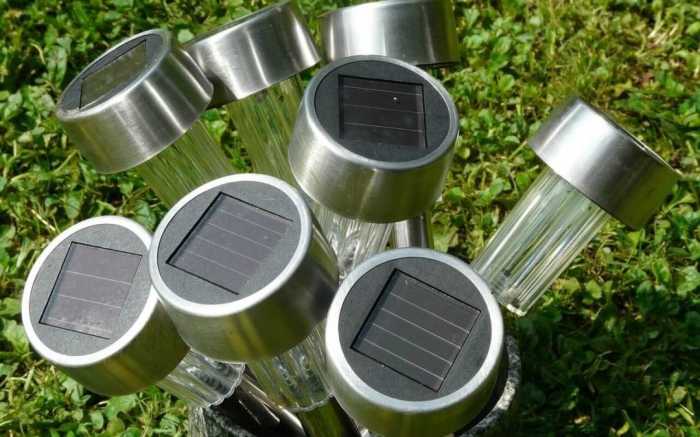
Solar lights offer a compelling blend of sustainability, cost-effectiveness, and convenience. By illuminating your outdoor spaces with the power of the sun, these fixtures provide a reliable and eco-friendly lighting solution. Whether you’re looking to enhance the ambiance of your garden, ensure safety on your walkways, or simply reduce your energy consumption, solar lights present a practical and appealing option.
By carefully considering your specific needs and evaluating the various factors discussed in this guide, you can determine whether solar lights are the perfect fit for your home and lifestyle.